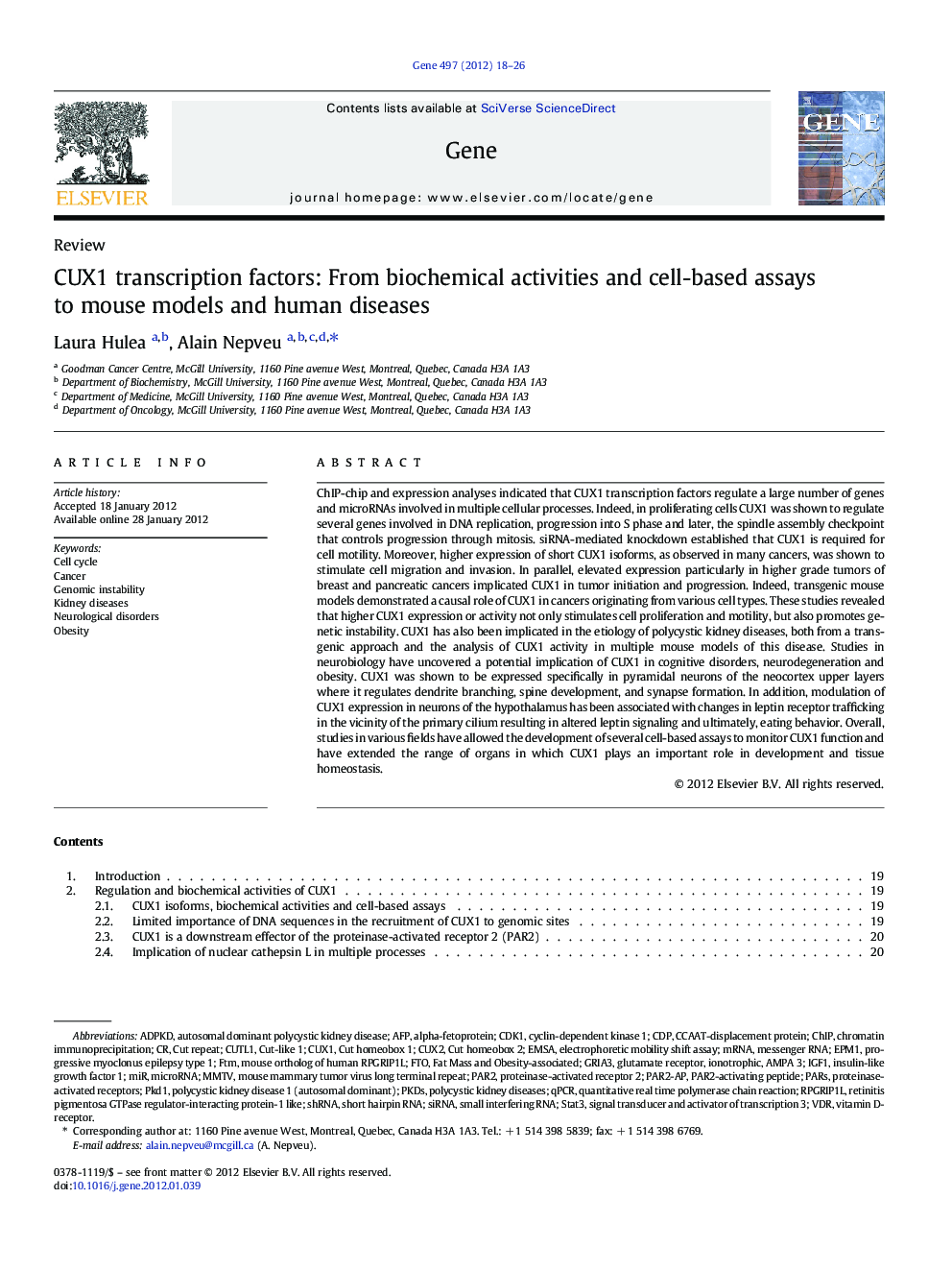| Article ID | Journal | Published Year | Pages | File Type |
|---|---|---|---|---|
| 2817967 | Gene | 2012 | 9 Pages |
ChIP-chip and expression analyses indicated that CUX1 transcription factors regulate a large number of genes and microRNAs involved in multiple cellular processes. Indeed, in proliferating cells CUX1 was shown to regulate several genes involved in DNA replication, progression into S phase and later, the spindle assembly checkpoint that controls progression through mitosis. siRNA-mediated knockdown established that CUX1 is required for cell motility. Moreover, higher expression of short CUX1 isoforms, as observed in many cancers, was shown to stimulate cell migration and invasion. In parallel, elevated expression particularly in higher grade tumors of breast and pancreatic cancers implicated CUX1 in tumor initiation and progression. Indeed, transgenic mouse models demonstrated a causal role of CUX1 in cancers originating from various cell types. These studies revealed that higher CUX1 expression or activity not only stimulates cell proliferation and motility, but also promotes genetic instability. CUX1 has also been implicated in the etiology of polycystic kidney diseases, both from a transgenic approach and the analysis of CUX1 activity in multiple mouse models of this disease. Studies in neurobiology have uncovered a potential implication of CUX1 in cognitive disorders, neurodegeneration and obesity. CUX1 was shown to be expressed specifically in pyramidal neurons of the neocortex upper layers where it regulates dendrite branching, spine development, and synapse formation. In addition, modulation of CUX1 expression in neurons of the hypothalamus has been associated with changes in leptin receptor trafficking in the vicinity of the primary cilium resulting in altered leptin signaling and ultimately, eating behavior. Overall, studies in various fields have allowed the development of several cell-based assays to monitor CUX1 function and have extended the range of organs in which CUX1 plays an important role in development and tissue homeostasis.
► CUX1 accelerates the start of DNA replication and promotes genetic instability. ► CUX1 stimulates cell migration and invasion. ► CUX1 expression is elevated in breast and pancreatic tumors of higher grade. ► CUX1 stimulates dendrite branching and synapse formation in the neocortex. ► CUX1 may regulate leptin signaling and obesity via its effect on the primary cilium.
